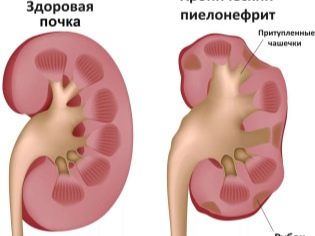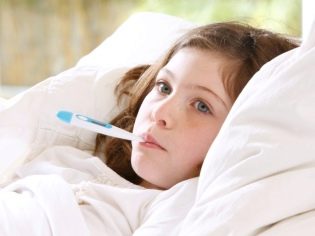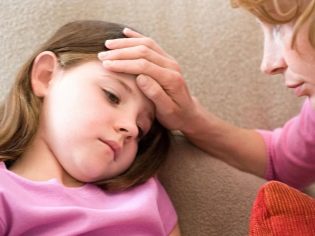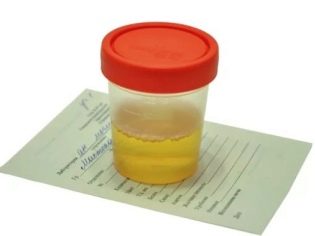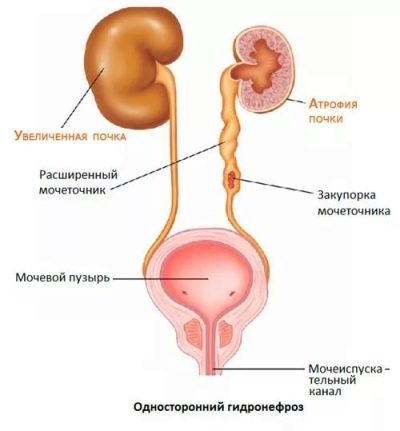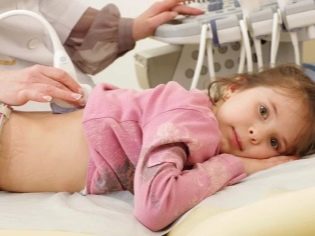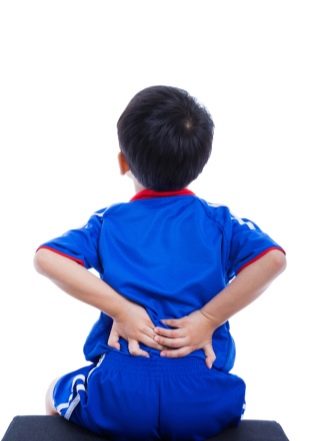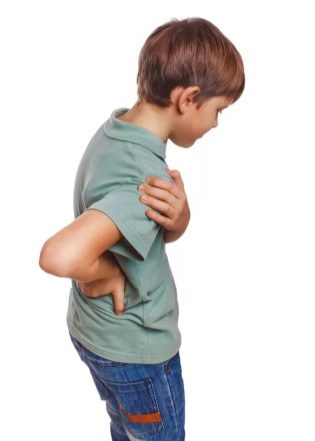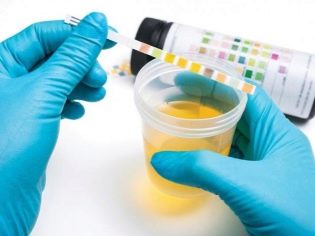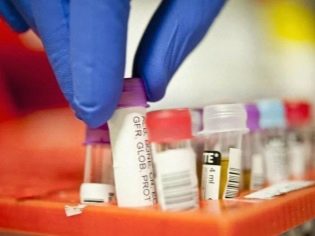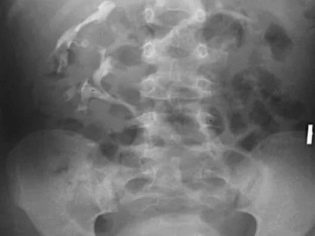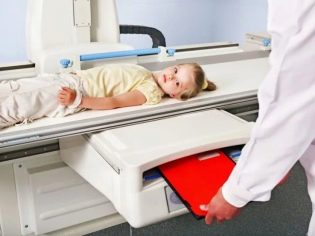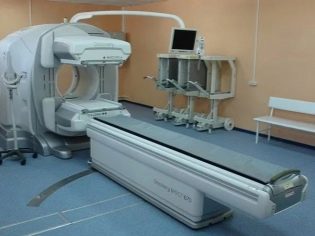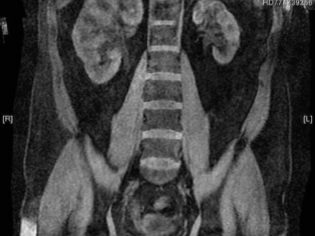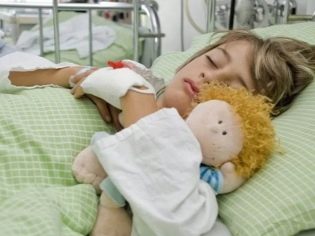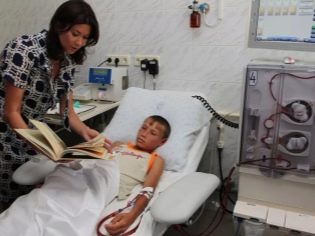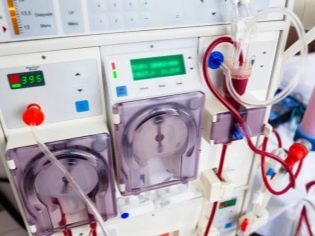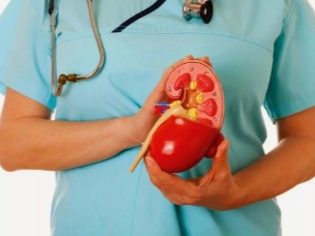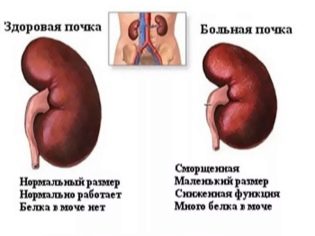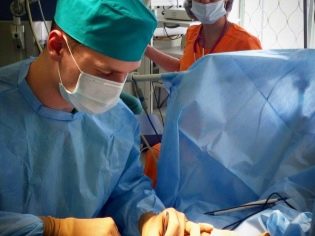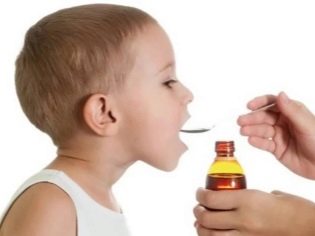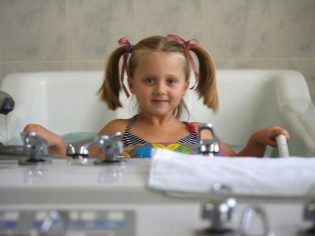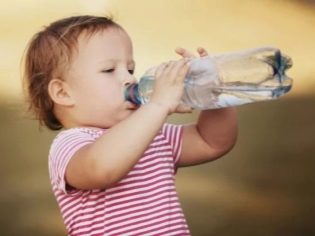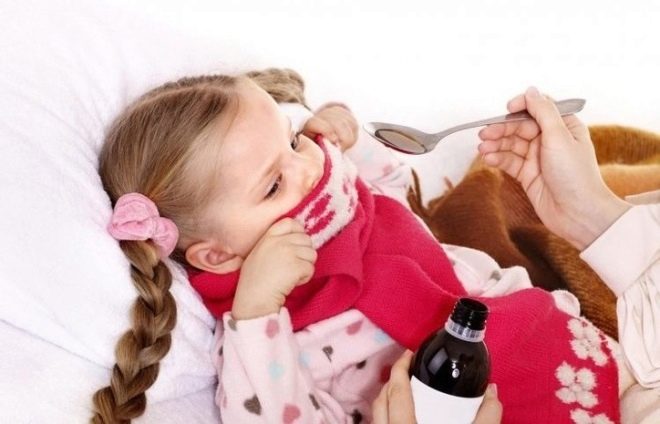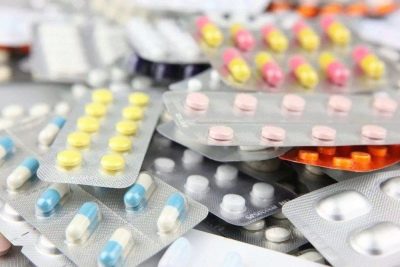Symptoms and treatment of pyelonephritis in children
Kidney disease is one of the most common childhood pathologies. The impact of numerous factors leads to their development. The danger of such pathologies is that they often turn into chronic forms with the frequent appearance of adverse complications.
What it is?
The inflammatory process in the kidneys, in which the cup-pelvis system is damaged, often leads to the development of pyelonephritis. The disease occurs at different ages, including in children. Both the baby and the teenager can get sick. According to statistics, the first case of pyelonephritis occur in young children. This disease is one of the most frequent in children's urology.
An inflammatory process that causes various provocative causes leads to the development of damage to the pelvis-pelvis system. The most common of these are bacterial or viral infections. As a result of such exposure in the body starts a cascade of inflammatory reactions, leading to damage to the excretory system of the kidneys.
Normally, the cup and pelvis system or CLS is needed for the accumulation and elimination of urine that is formed in the kidneys.
If an inflammatory process occurs, the normal operation of the CLS is not possible. This leads to the appearance of adverse symptoms associated with impaired urination.
According to statistics, girls often suffer from pyelonephritis. This feature is due to the fact that they naturally have a somewhat shorter and narrower urethra than boys.
Doctors secrete several dangerous critical periods when the kidneys are most sensitive to the effects of various adverse factors. These include:
- age from birth to two years;
- 5-7 years;
- teenage years.
At this time, you should as carefully as possible to monitor the well-being of the baby. If any signs of impaired or painful urination occur, the child should be shown to the doctor.
Over time, the acute process can become chronic, which significantly worsens the prognosis of the course of the disease. Chroning usually takes several months.
Chronic pyelonephritis requires constant monitoring of the child and a course of preventive treatment, which is usually appointed by the pediatric urologist. With properly selected therapy and the absence of aggravating causes on the part of the child’s health, chronic pyelonephritis does not occur.
Causes
The development of kidney damage can lead a variety of causal factors. They can act in isolation or simultaneously. The constant influence of causative factors contributes to the formation of persistent and chronic forms of the disease. The following reasons lead to the appearance of pyelonephritis in a child:
- Bacterial infections. Are leaders in the incidence of pyelonephritis. Usually the culprits of the disease are: various forms of streptococci, staphylococci, Toxoplasma, chlamydia, ureaplasma, and representatives of anaerobic flora. They quickly penetrate the kidneys through the systemic circulation and cause severe inflammation in them. The clinical forms of the disease caused by the bacterial flora usually proceed quite hard with severe symptoms of intoxication.
- Viral infections. They lead to the development of pyelonephritis much less frequently than bacterial ones. Adenoviruses, ECHO - viruses, as well as Coxsackie viruses can cause kidney damage. The peak incidence of viral pyelonephritis usually occurs at the age of 2-3 years. These diseases occur with fever and urinary disorders.
- Various anatomical defects. The presence of congenital pathologies of the kidneys leads to the accumulation of urine in the cup-pelvis-plating system and its pronounced stretching. Ultimately, this contributes to the development of pyelonephritis. Typically, these congenital forms of the disease are detected in babies up to a year. In some cases, surgery is required to eliminate the cause.
- Frequent colds. If a baby suffers from respiratory diseases up to four times a year, then he enters the risk zone for the development of chronic pyelonephritis. During any respiratory disease, the children's body is greatly weakened, and the immunity is markedly reduced. This leads to the spread of infection throughout the body and involvement in the inflammatory process of the kidneys with the development of chronic pyelonephritis.
- Secondary foci of infection. In babies, they usually become sick teeth and chronic diseases of the ENT organs. Any immunodeficiency condition only contributes to the early development of pyelonephritis.
In time, untreated secondary foci of infection provoke weakening of the immune system and lead to the spread of pathogenic microorganisms throughout the child's body.
- Traumatic injury. Impacts to the lumbar region can lead to damage to the kidney tissue, which ultimately contributes to the development of chronic nonspecific pyelonephritis. Falls on the back from a height and various car accidents can also be the causes of chronic kidney disease.
- Severe hypothermia. Exposure to cold temperatures has a negative effect on the entire children's body, including the kidneys. Cold causes a pronounced spasm of blood vessels that feed the kidney tissue. After some time, this leads to the development of inflammation in the pelvis, which is the first sign of the development of pyelonephritis in the future.
- Dysbacteriosis. Dysbacteriosis - a functional violation of the bowels. Often it develops after an infectious disease suffered by a child. Impaired bowel function contributes to the accumulation of toxic metabolic products, which leads to an imbalance in the kidneys.
- Gynecological diseases (in girls). The peculiarity of the female urinary and reproductive system causes an easier way of infection. Babies with diseases of the genital organs, according to statistics, suffer from chronic pyelonephritis three times more often.
Classification
Currently, doctors distinguish several nosological groups of diseases. This separation is carried out taking into account the causes of the disease, as well as the timing of the emergence and preservation of adverse symptoms.
The duration of the course of the following clinical types of pyelonephritis:
- Acute. Acute pyelonephritis is recorded for the first time in my life. Characterized by the appearance of bright adverse symptoms of the disease. With the wrong treatment and late diagnosis, the process may become chronic.
- Chronic. Chronic pyelonephritis is characterized by prolonged development. The diagnosis is established in babies who have abnormal urine tests and / or clinical symptoms for 12 months. The disease has an undulating course: periods of remission are replaced by exacerbations. To eliminate adverse symptoms requires the appointment of a comprehensive treatment.
Some specialists also use other classifications of this disease. So, in the absence of reliably identified causes that would lead to the development of the disease, they speak of primary pyelonephritis.
Secondary pyelonephritis is the most common form of the disease.
In this case, doctors can accurately determine the cause, which contributed to the development of the disease in the baby.
Urologists offer another division of clinical forms of pyelonephritis - by the presence of an anatomical obstacle to the flow of urine. Given this classification, the disease can be obstructive and non-obstructive.
The presence of any anatomical obstacle to the outflow of urine (obstruction) leads to the development of a secondary obstructive form of the disease. Often this situation occurs with various congenital abnormalities in the development of the kidneys or urinary tract.
Secondary non-obstructive pyelonephritis occurs against the background of various metabolic pathologies (dysmetabolic disorders), with immunodeficiency states, as well as with marked cardiovascular disorders.
It is important to note that primary pyelonephritis is not common. According to statistics, it is recorded only in 10-12% of cases.
Every year in the structure of the incidence of kidney, the proportion of primary pyelonephritis decreases. This is due to the improvement of the clinical laboratory base and the development of new diagnostic methods that help to establish the causes of the most different forms of renal pathologies in children.
During chronic pyelonephritis, doctors distinguish several successive stages:
- active process chronization;
- persistent changes in urine tests;
- transition to clinical and laboratory remission and periodic exacerbations.
A prolonged inflammatory process leads to various structural changes in the kidneys and urinary tract. So, the kidney tissue begins to be replaced by connective. This contributes to the development of complications of the disease and even the possible formation of renal failure.
Symptoms
The disease is different. In some cases, it may not manifest itself. This course of the disease is called latent or hidden.
To establish the diagnosis and identify the disease in this situation is possible only with the control of urinalysis and an ultrasound of the kidneys.
Latent pyelonephritis occurs in pediatric practice quite often.
Acute pyelonephritis or exacerbation of chronic is accompanied by the appearance of various adverse symptoms. Their severity may be different. It is directly dependent on the initial state of the baby, as well as the presence of concomitant diseases.
In children with signs of immunodeficiency, the disease manifests itself most clearly.
The following symptoms are characteristic of the acute course of the disease:
- Increased body temperature. In most cases, its values reach 38-39.5 degrees. Usually, the temperature lasts for a week, and then gradually decreases with the treatment. Bed rest and the use of antipyretics helps to improve the general condition of the body and normalize the child’s well-being.
- Pain in the lumbar region. It does not always occur. In a one-sided process, the pain appears only on the affected side. Bilateral pyelonephritis is accompanied by the spread of pain throughout the lower back. The symptom is aggravated by tapping the lumbar spine.
- Intoxication. May be very pronounced. Against the background of high body temperature, the baby develops chills, shakes and fevers. The child eats less, trying to spend more time in the crib. Your baby's appetite decreases, and sleep may be disturbed.
- Impaired urination Usually the baby feels a heightened urge to urinate. Portions of urine can be somewhat reduced in volume. The total volume of fluid withdrawn per day decreases, but only slightly. In some cases, in the presence of cystitis, the child also experiences a burning sensation or soreness during urination.
- Discoloration of the skin. Chronic pyelonephritis, especially occurring with frequent exacerbations, leads to the fact that the baby's skin becomes pale and dry to the touch. The area under the eyes usually gets a bluish tint. The baby has a painful and emaciated appearance.
- The appearance of edema. Usually they are located on the face and especially in the eyelids. Chronic pyelonephritis, occurring with a pronounced nephrotic (edematous) syndrome, leads to the development of puffiness and pastosity in a child. On pale skin the veins which are located subcutaneously are well looked through.
- Changing the smell of urine. This sign is often revealed by parents of newborns and infants. Mummies, draining the urine of the child from the pot, notice that it becomes muddy and has an unpleasant sour smell. The presence of suspension and white sediment, most likely, indicates the presence also of a baby of crystals of various salts in the urine.
- Blood pressure increase. Usually this sign appears in babies with long-term chronic pyelonephritis. Impaired urine excretion leads to the accumulation of fluid inside the body, which contributes to the change in hemodynamics. Ultimately, this causes the child to constantly increase blood pressure. As a rule, doctors detect this symptom in children only in adolescence.
- Behavior change. During the exacerbation of pyelonephritis, the baby becomes more capricious, nervous. Schoolchildren who have a latent course of the disease are worse off in school and may experience problems with mastering a large amount of educational material. A sick child is much harder to concentrate and perform difficult tasks that require increased mental stress.
Diagnostics
Identify the disease should be as soon as possible. The very first symptoms that appear should alert the parents and motivate them to consult a specialist for advice.
In time, not treated acute pyelonephritis in most cases becomes chronic. Resistant forms of the disease are treated much harder.
When identifying the first signs of illness in a baby, it is better to contact a pediatric urologist. This specialist has all the necessary knowledge and experience in treating various diseases of the kidneys and urinary tract.
Previously, the doctor will examine the baby and prescribe the child the entire necessary range of examinations. To establish the correct diagnosis requires laboratory tests and instrumental studies. The basic tests for the diagnosis of various clinical forms of pyelonephritis are considered a complete blood and urine test.
Infectious variants of the disease are accompanied by the appearance of a large number of leukocytes and marked changes in the leukocyte formula. It changes the number of neutrophils, lymphocytes and monocytes, which indicate the presence in the children's body of various infections in the acute stage. Accelerated ESR repeatedly indicates the severity of the inflammatory process.
Urinalysis is a mandatory test for any kidney disease. and urinary tract, including with pyelonephritis. Inflammation is manifested by an increase in the number of leukocytes, a change in color, and in some cases, urine density.
To clarify the causative agent of the disease in case of infectious forms of pyelonephritis, doctors use an additional laboratory test, baccavi. He will not only be able to identify the cause and causative agent of infectious pyelonephritis, but also give clarifications to which antibiotics it is sensitive to. Such a test is mandatory to select the optimal tactics of therapy.
Pediatric urologists may also order a kidney and urinary tract ultrasound. This method allows you to identify various structural abnormalities and pathologies of the structure of the kidneys, which lead to various violations of urine.
Renal ultrasound is a mandatory examination. with obstructive pyelonephritis. The method is safe and can be used even in the smallest patients. Also, ultrasound of the kidneys is performed on infants with risk factors for the development of renal diseases.
In older children, a special x-ray examination, urography, is carried out to determine the functional ability of the kidneys. For this, a special substance is introduced through the vein - urocontrast. It selectively penetrates the kidney tissue and urinary organs of the child and stains them.
During the procedure, several X-rays are taken that give a descriptive picture of how the kidneys form and expel urine. The study has a number of contraindications and is appointed only by the attending urologist.
In some countries, doctors use the method of radioisotope renography. It consists in the introduction of a special radio substance, which selectively penetrates the renal tissue. Usually this method is used to identify unilateral pathologies.
In our country, due to the large number of contraindications to this method, including a pronounced radiation exposure, this study is not widely distributed.
For the correct diagnosis requires several diagnostic tests. To accurately speak about the presence of chronic pyelonephritis, it requires the detection of clinical and / or laboratory signs of the disease for a long time.
It is not possible to speak about the presence of chronic pyelonephritis in a child only according to one general urine analysis.
In the course of the development of the disease requires mandatory monitoring by doctors for changes in the analysis. Proper and attentive attitude to the state of the baby will help prevent multiple negative complications and the consequences of the disease in the future.
Complications
The latent course of pyelonephritis is dangerous development of long-term effects. To notice them in the early stages of the disease is impossible. Usually, they need enough time to form. A complication of acute pyelonephritis is the chronization of the process, and its transition to the chronic form. Complicated options are much harder. Usually their treatment is carried out in a hospital.
Pyelonephritis has a fairly favorable prognosis with a properly selected treatment regimen. Complications of the disease are found only in 5-10% of babies. The most dangerous of them is the formation of renal failure. This pathological condition is characterized by a violation of all the basic functions that normally carry out the kidneys.
Impaired urine excretion leads to excessive accumulation of metabolic products that poison the children's body. The initial stages of renal failure are treated conservatively with the use of drugs. For a long time, the current state already requires specialized treatment - hemodialysis.
Infectious pyelonephritis can be complicated by purulent inflammation. This leads to the fact that an abscess appears on the kidney.
The danger of this pathological condition is that a purulent mass may suddenly burst with the expiration of pus into the abdominal cavity. This leads to the development of bacterial sepsis. Such an emergency requires immediate hospitalization of the child. Renal abscesses are treated surgically.
Late stages of pyelonephritis are accompanied by marked disorders of the structure of the urinary organs. This leads to the fact that the kidneys shrink and shrink.
Such a change in the structure also contributes to violations in the work of the body. The blood accumulates a huge amount of waste products of metabolism, which leads to a state of uremic intoxication. The treatment of shriveled kidneys (nephrosclerosis) is done by a nephrologist.
Treatment
To eliminate the adverse symptoms of all types of pyelonephritis requires the appointment of a whole complex of therapeutic measures. They include:
- dieting;
- correct daily routine;
- drug therapy;
- the appointment of special herbs with urosepticheskim action;
- Spa treatment in periods of remission of the disease.
In order to choose the right treatment strategy for a child, a doctor must inspect. Obstructive pyelonephritis is the reason for referring to the operating urologist. In this situation, surgery may be required.
Babies of early age usually do not undergo surgery, but are prescribed conservative treatment. Doctors resort to carrying out operations only if the previous treatment with drugs was not effective, or if the baby has pronounced anatomical defects in the structure of the kidneys.
The duration of therapy may be different. Acute pyelonephritis is usually treated for 10-14 days. The duration of exacerbation of the chronic form is impossible to predict.
In some cases, the adverse symptoms disappear after a week from the moment of their first appearance, or they can develop in about a month. In weakened children, the exacerbation of chronic pyelonephritis usually lasts longer.
The choice of treatment tactics also depends on the cause of the disease.
If pyelonephritis has occurred against the background of any infection, then the elimination of adverse symptoms requires the mandatory prescription of antibacterial and antiviral drugs.
For the treatment of obstructive pyelonephritis in very young children, symptomatic agents are used, the action of which is aimed at improving urine excretion and normalizing the optimal functioning of the kidneys.
Secondary non-infectious pyelonephritis is treated in the acute period with the help of herbal medicine, and during remission by means of sanatorium-and-spa treatment.
Children with chronic pathologies of the excretory system and kidneys, should definitely undergo annual therapy in a sanatorium. The duration of the voucher for the course of treatment should be 14-21 days. Usually this time is enough to complete all the procedures that are assigned to the child to improve the performance of his kidneys.
Doctors recommend taking spa treatment for young patients at least once a year, and more often if possible.
After the therapy in the sanatorium, the child's kidney performance improves, urination normalizes. In the general analysis of urine, the total number of leukocytes decreases and various salt crystals are absent.
Unfortunately, the effect of such treatment is not stable. Usually, improvement lasts for 6-8 months, after which kidney performance gradually begins to decline. To preserve the achieved result of treatment, its regular repetition is required.
Diet
Medical nutrition for children suffering from pyelonephritis, should be different. During the height of the disease, they are recommended a lightweight milky-vegetable diet.
From the child's diet at this time removed all hard to digest foodsespecially those of animal origin.
The main emphasis in the diet should be made on easily digestible sources of protein: milk and dairy products, white fish, lean chicken and turkey. Each of the meals should be supplemented with vegetable products: fruits and vegetables.
The need for protein per day ranges from 1.5-2 grams / kg of the child's weight. Exceeding the norm in the acute period of the disease is not worth it, since it contributes to an excessive load on the kidneys.
Daily salt intake is limited. On the day of the baby enough to use no more than three grams - less than a teaspoon. Abuse of table salt can lead to the appearance or strengthening of edema on the face.
Drinking regimen plays a very important role in the treatment of pyelonephritis. In order not to have extra swelling and good kidneys, it’s enough for the kid to drink his daily fluid intake. This value is determined by the age of the child.
On average, schoolchildren and teenagers should drink about 1-1.5 liters of fluid per day. Various berry fruit drinks and compotes are perfect as drinks.
During the remission of pyelonephritis, the therapeutic diet changes somewhat. The drinking regimen also remains, but a greater amount of the usual foods is added to the baby’s diet. The child is allowed to give all kinds of lean meat, poultry, fish, dairy products. For admission to the children's body of natural sources of vitamins and minerals requires the mandatory inclusion in the daily diet of fresh fruits and vegetables. Try to choose the fruits of the season, do not overload the kid's menu with tropical fruits.
Children with signs of pyelonephritis and a tendency to the formation of edema should eat fewer foods, which may include sodium chloride or sodium chloride. There are a number of foods that contain salt in large quantities. These include: various sausages and sausages, marinated and canned dishes, ready-made sauces and ketchup, chips and various snacks, dried and salted fish. These products in the children's diet should not be. Too frequent use of such food contributes not only to the appearance of edema in the presence of chronic kidney disease, but also can lead to the appearance of stones in the renal tissue and other internal organs.
The nutrition of a baby with pyelonephritis should be balanced and varied.
At the heart of his medical diet are various cereals and vegetables that provide the children's body with enough energy.
For the good functioning of the immune system, the child should receive a sufficient amount of protein products. They are also needed for its growth and full development. Regular dieting will help your baby maintain good kidney function and prevent new exacerbations of chronic pyelonephritis in the future.
Uroseptics
Drugs that have anti-inflammatory effects on the organs of the excretory system and improve urination are called uroseptics. They can be in various forms of release. Most often these are tablets or syrups, as well as suspensions.
Selection of drug therapy and dosage of drugs is carried out by the attending physician. To each of the means there are contraindications that causes increased attention to their intended use in children.
To normalize urination in babies, the following uroseptic drugs are used:
- Fluoroquinolone antibiotics. These funds are among the most commonly prescribed for the treatment of various urinary pathologies.
- Cephalosporin antibiotics of the second and third generations. Injectable forms of drugs allow you to use them in severe disease. They are prescribed for infectious pyelonephritis with established infectious agents. They have a pronounced effect on staphylococci and streptococci, as well as some anaerobic microorganisms.
- Sulfonamides Currently, they are used quite rarely, since in most cases, doctors prefer drugs from other groups.
- Quinolone derivatives: oxolinic acid, cinoxazine. Not widely used in children's practice. Currently used extremely rarely.
- Various nitrofuran derivatives: nitrofural, nitrofurantoyl, nifuratel and others. Appointed by age. Used in complex treatment.
- Vegetable uroseptics: lingonberry leaf, cranberry, lingonberry, parsley, juniper, wild rosemary, thyme, tutsan and others.
Selection of uroseptichesky drug for the treatment of pyelonephritis - is individual.
The therapeutic effect of many of these agents depends on the urine pH values. Thus, in an alkaline environment, aminoglycosides and macrolides bring the maximum effect. For alkalization of urine and applied milk-vegetable diet. It helps to significantly enhance the effect of antibiotics.
The duration of taking antibacterial agents depends on many factors: the clinical form of pyelonephritis, the age of the baby, the presence of concomitant diseases, and the severity of the underlying pathology.
Medications
Drug therapy of secondary pyelonephritis is symptomatic. Selection of drugs is carried out taking into account the presence of adverse symptoms that are present in the child. The duration of treatment may be different. On average, it takes 10-14 days to improve well-being against the background of properly selected treatment.
If a bacterial or viral infection has become the cause of the disease, then antibiotics or antiviral drugs must be included in the treatment complex. Currently, physicians prefer drugs with a wide spectrum of action. This allows you to work on several different groups of pathogenic microorganisms. The duration of antibiotic therapy for exacerbation of chronic pyelonephritis is usually 5-10 days.
Treatment of the disease is carried out consistently. First, uroseptics and antibiotics of synthetic origin are prescribed, and then phytotherapy for final remission. It usually stretches over several weeks. During the entire course, the effectiveness of the prescribed therapy is monitored. For this purpose, urine tests and control bacposev are performed.
At high body temperature during acute pyelonephritis anti-inflammatory and antipyretic agents are used. In children, paracetamol-based and ibuprofen-based medicines are more commonly used. They are appointed in age dosages.
Reducing subfebrile numbers is not required, as this may further lead to a weakening of the immune system.
If the child has an impaired urine flow, then soft diuretic (diuretic) agents are prescribed. With the self-prescribing of these drugs you need to be very careful! The presence of anatomical anomalies in the kidneys and various strictures (pathological narrowing of the lumen) of the urinary tract are contraindications for their reception. Before using diuretics, be sure to consult with your doctor.
Also in the complex treatment of pyelonephritis there are various multivitamin and antioxidant complexes. Their biologically active components strengthen the child’s immunity and give him strength to fight the disease. Eat vitamins should be both during the acute period of the disease, and courses for the prevention of new exacerbations.
Phytotherapy
Herbal medicine is a great way to treat pyelonephritis. It is carried out with the help of various medicinal plants, which have a pronounced uroseptic effect.
A course of phytotherapeutic treatment helps not only to eliminate the adverse symptoms of impaired urination, but also improves the performance of the kidneys.
For home use you can use:
- Lingonberry leaf. Helps improve urination and eliminates soreness when going to the toilet. The use of decoctions made from cranberries or lingonberry leaves, eliminates swelling and pastoznost. The course of treatment is usually 2-3 weeks of daily intake. Apply broths should be 3-4 times a day.
- Cranberry. For many centuries all over the world the therapeutic effect of this wonderful berry has been known.Compote or fruit drink made from cranberries helps to cope with any inflammatory pathologies of the kidneys and urinary tract. These beneficial berries also contain a fairly large amount of vitamin C, which is a natural antioxidant.
- Bearberry leaves. This medicinal plant grows mainly in the European part of Russia, as well as in some CIS countries. Bearberry has a remarkable anti-inflammatory, uroseptic action. The use of decoctions prepared from this plant helps to normalize the work of the kidneys and eliminate the adverse symptoms of pyelonephritis.
- Kidney tea. It contains various combinations of medicinal plants with uroseptic and anti-inflammatory effects. Appointed in the period without exacerbation of the disease to lengthen the terms of remission, as well as in the acute period to improve impaired urination.
Prevention
Preventing kidney disease is much easier than curing. Observe the available rules of prevention should be throughout life.
It is very important to monitor compliance with preventive measures in children who have various risk factors for developing kidney and urinary tract diseases.
Prevention of pyelonephritis in a child includes:
- Mandatory identification and treatment of all foci of infection. Sick teeth, chronic diseases of ENT organs, gynecological pathologies in girls must be treated. The prolonged course of chronic diseases and their frequent exacerbations contribute to the spread of infection throughout the body and the involvement of the kidneys in the inflammatory process with the development of pyelonephritis.
- Maintain a healthy lifestyle. Strengthening immunity, nutrition and optimally chosen physical activity contribute to the active work of the immune system and prevent the development of inflammatory pathologies. To recuperate, the baby should fully relax and get enough sleep. Night sleep in babies should be at least 8 hours.
- Regular inspections. If a child has congenital developmental anomalies of the lobes or urinary tract, it must be observed at the pediatric urologist or nephrologist. So kiddies 1-2 times a year are carried out general blood and urine tests to monitor the course of the disease. According to the indications performed ultrasound, as well as other instrumental examinations.
- Vaccination by age. Many infections that result in an effect on the kidneys can be prevented during vaccinations. Adherence to the vaccination schedule will prevent dangerous kidney inflammation.
- Passing spa treatment. If your child has risk factors, sanatorium treatment will help prevent the development of dangerous diseases, including chronic pyelonephritis.
About what is pyelonephritis in children, see the following video.

